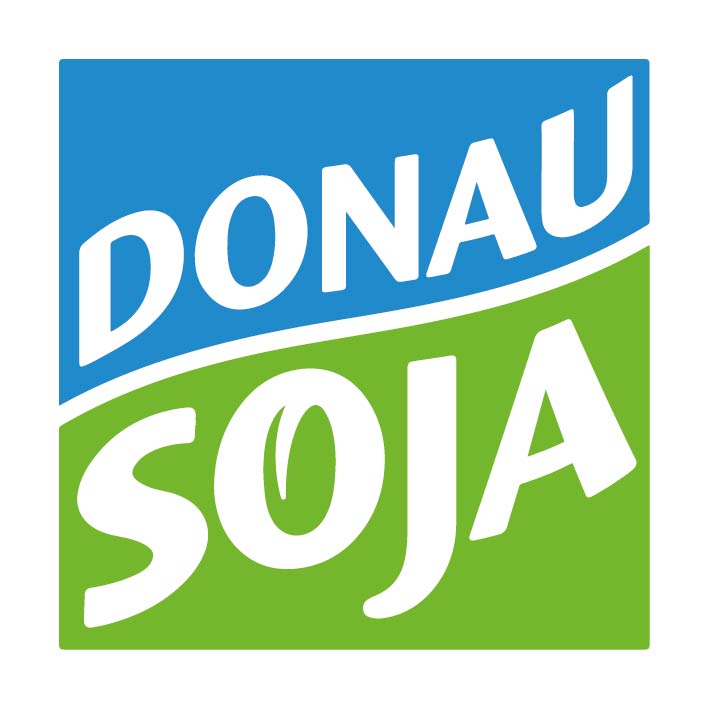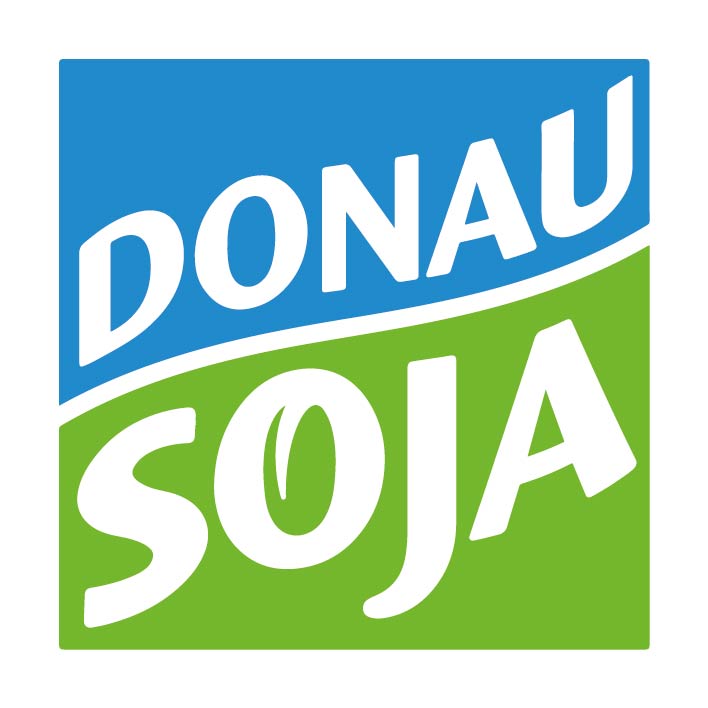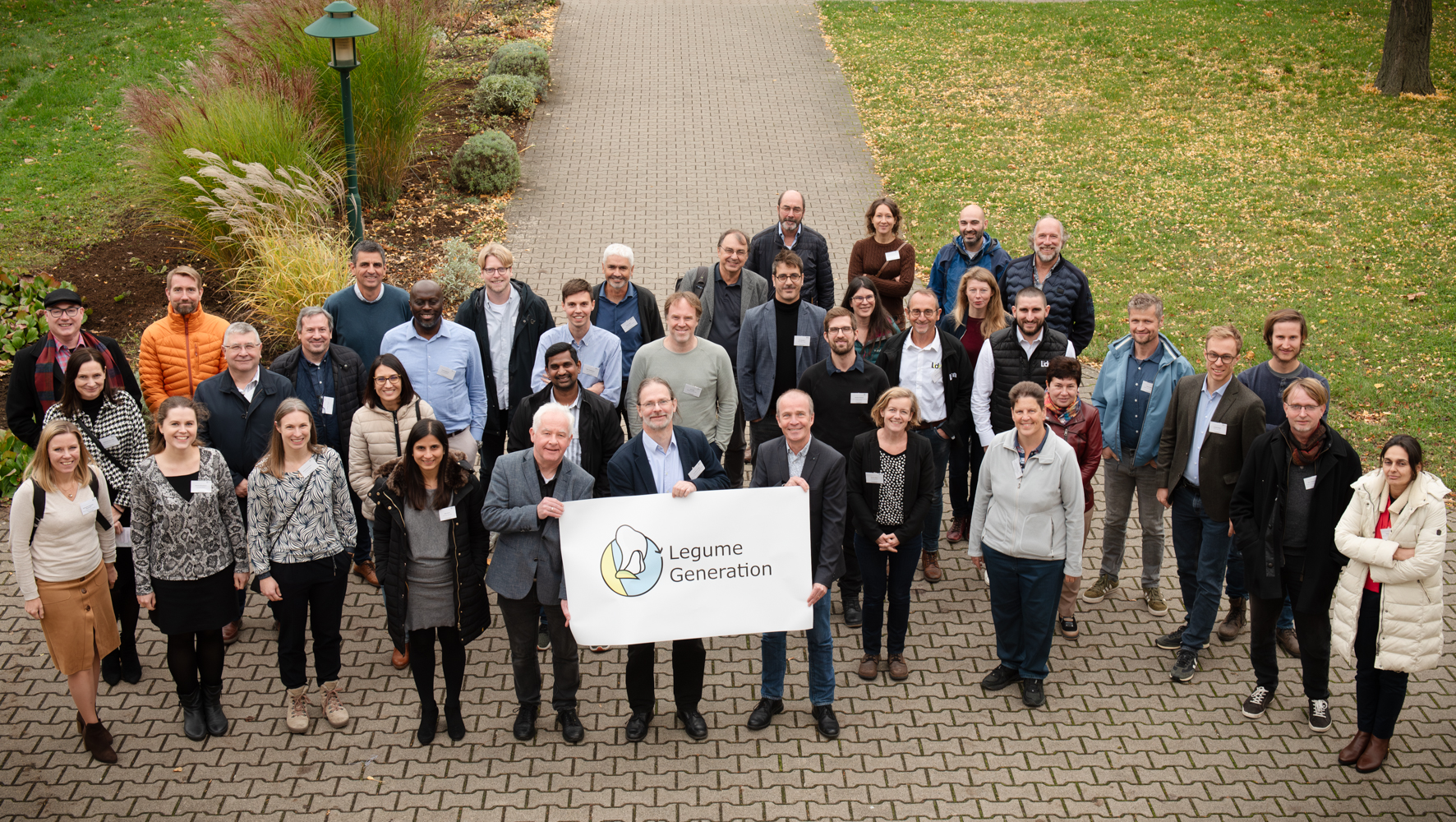(Vienna/Berlin/Bern). We need better legume crops to help farmers meet Europe’s demand for plant protein and support a protein transition. Understanding this, fifty scientists and plant breeders participated recently in a meeting held at the Leibniz Institute of Plant Genetics and Crop Plant Research (IPK) in Gatersleben/Germany. Including Donau Soja, they are all members of the Legume Generation consortium which has recently been awarded 7 million Euros from the European Union and the United Kingdom. The total value of the new project is 8.6 million Euros. Running from September 2023 to February 2028, Legume Generation aims to reduce the European protein deficit by boosting plant breeding to make legumes more productive and profitable for European farmers. The consortium is coordinated by Dr Lars-Gernot Otto at the IPK and Dr Donal Murphy-Bokern, a close associate to Donau Soja.
Putting plant breeders in the lead
The Legume Generation consortium has 32 partners from 16 countries, including New Zealand and the USA. They run more than 40 legume breeding and pre-breeding programmes. The breeders will join forces in Legume Generation with Europe’s leading research organisations in this area to boost the breeding of soybean, lupin, pea, lentil, common bean and clover. This will support the EU Biodiversity and Farm to Fork strategies. “The project will contribute to our mission to support plant breeding with our seed bank and to harness the power of genetics for the sustainable development of farming. The legumes are an essential part of sustainable agricultural systems and this project allows us to contribute to developing the improved varieties that we need”, says Dr Otto. “We need to form new partnerships between leading European plant research organisations and the plant breeders upon which the improvement of farm crops depends. We will change the way legume plant breeders are supported by research for the benefit of European farmers, the environment, and our health”, Dr Donal Murphy-Bokern summarises the coming years.
Legumes are good for our health and the environment
In the light of climate change, declining biodiversity, and the benefits of plant-based foods, plants of the legume family are good for our health and for the planet. Lentil, soybean, lupin, pea, and common bean and their relatives fix their own nitrogen from the air and provide us with the protein-rich seeds, including the pulses, that are key to a healthy and sustainable diet. Increasing their production in Europe makes farming systems more diverse, resilient and sustainable. Their flowers are a source of pollen for insects. In addition, clover is very valuable in sustainable grassland farming systems.
Closing Europe’s protein gap
Despite all the benefits and the need to change how we source and use plant protein, legume crops are relatively rarely grown by European farmers, accounting for only 2-3% of the cropping area. Part of the reason for this is that investment in the breeding is constrained by low rewards for the private plant breeding of these crops. The Legume Generation consortium addresses this by creating new structures for collaboration between legume plant breeders and public research. It puts six species-specific innovation communities at the heart of the effort to improve legume crops. Each will bring together genetic resources, expertise in data management, genetics, testing and focus this on the breeding of its crop species, led for the benefit of breeders.
Legume Generation is a contribution to a European Protein Transition
How we source and use plant protein has a huge impact on the world. The European farming is dominated by starch-rich cereals, a large proportion of which is used to feed animals so that most of us can have diets rich in animal-sourced foods. This highly productive agricultural system with a large livestock sector in the EU and UK uses about 10 million tonnes of nitrogen fertiliser (from natural gas) and the equivalent of about 35 million tonnes of protein-rich soya, mostly imported. The resulting environmental problems are largely and ultimately due to the fact that many Europeans consume animal-sourced foods well in excess of public dietary guidelines. Protein is about 16% nitrogen. Most of the nitrogen in protein is lost to the environment when the protein is used to feed animals. Consequently, animal-sourced foods are linked to a wide range of nitrogen-related problems (nitrate, ammonia, and nitrous oxide). Increasing legume production in Europe is part of a two-pronged solution. It diversifies crop production while reducing reliance on fertiliser nitrogen. At the same time, increasing the production of grain legumes for food aligns well with the growing demand for plant-based protein-rich foods. This supports the EU’s Farm to Fork and Biodiversity strategies.
More information on the Legume Generation project and a list of the project partners: www.legumehub.eu/legume-generation/
Download press release
Download Legume Generation logo
Download picture of Legume generation team in Gatersleben/Germany (high resolution)
Credit for the photograph: J.-S. Himpe, Leibniz Institute of Plant Genetics and Crop Plant Research (IPK).
Inquiries, interview requests and photos:
Franko Petri
Head of Communications Donau Soja
Ph: +43-1-5121744-24
Mobile: +43-664-88961298
Email: petri@donausoja.org
Dr Donal Murphy-Bokern
Legume Generation project science coordinator
Mobile: +49-160-92792475
Email: donal@murphy-bokern.com
Website: www.murphy-bokern.com



